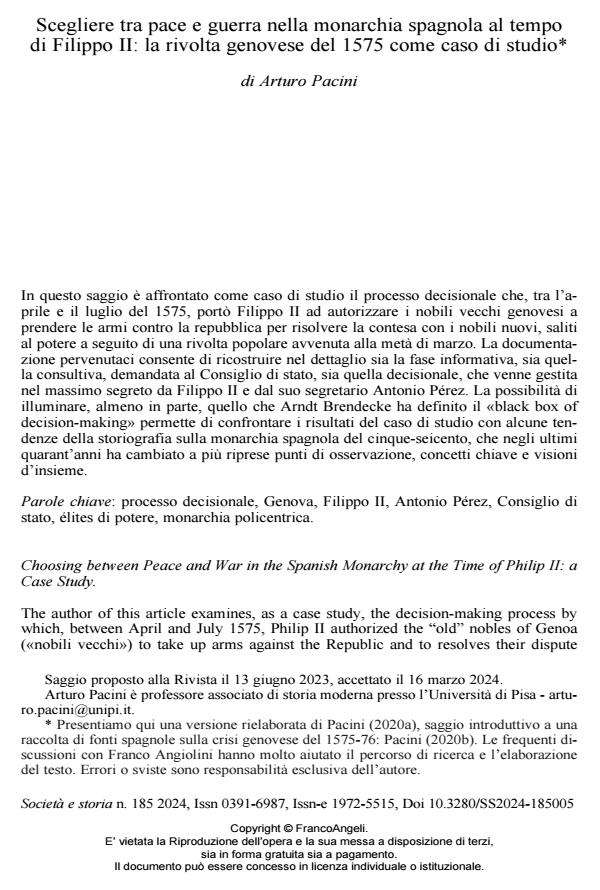Choosing between Peace and War in the Spanish Monarchy at the Time of Philip II: a Case Study.
Journal title SOCIETÀ E STORIA
Author/s Arturo pacini
Publishing Year 2024 Issue 2024/185
Language Italian Pages 32 P. 565-596 File size 269 KB
DOI 10.3280/SS2024-185005
DOI is like a bar code for intellectual property: to have more infomation
click here
Below, you can see the article first page
If you want to buy this article in PDF format, you can do it, following the instructions to buy download credits

FrancoAngeli is member of Publishers International Linking Association, Inc (PILA), a not-for-profit association which run the CrossRef service enabling links to and from online scholarly content.
The author of this article examines, as a case study, the decision-making process by which, between April and July 1575, Philip II authorized the “old” nobles of Genoa («nobili vecchi») to take up arms against the Republic and to resolves their dispute with the “new” nobles («nobili nuovi»), who were in power following a popular uprising in mid-March. The documentation that has come down to us allows us to reconstruct in detail not only the information-gathering phase and the consultative phase, which was entrusted to the Council of State, but also the decision-making phase, carried out in the utmost secrecy by Philip II and his secretary Antonio Pérez. The possibility of illuminating, at least in part, what Arndt Brendecke has called the «black box of decision-making» allows us to bring the results of this case study to bear on some recent trends in the historiography on the Spanish monarchy of the sixteenth and seventeenth centuries, which in the last forty years has changed its perspectives, key concepts and overall visions repeatedly.
Keywords: decision-making, Genoa, Philip II, Antonio Pérez, Council of State, power elites, polycentric monarchy.
Arturo pacini, Scegliere tra pace e guerra nella monarchia spagnola al tempo di Filippo II: la rivolta genovese del 1575 come caso di studio in "SOCIETÀ E STORIA " 185/2024, pp 565-596, DOI: 10.3280/SS2024-185005